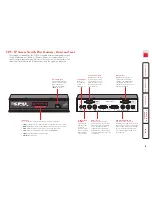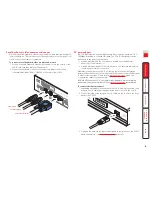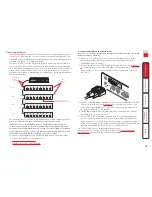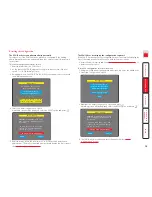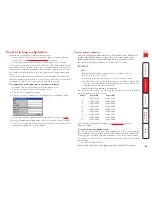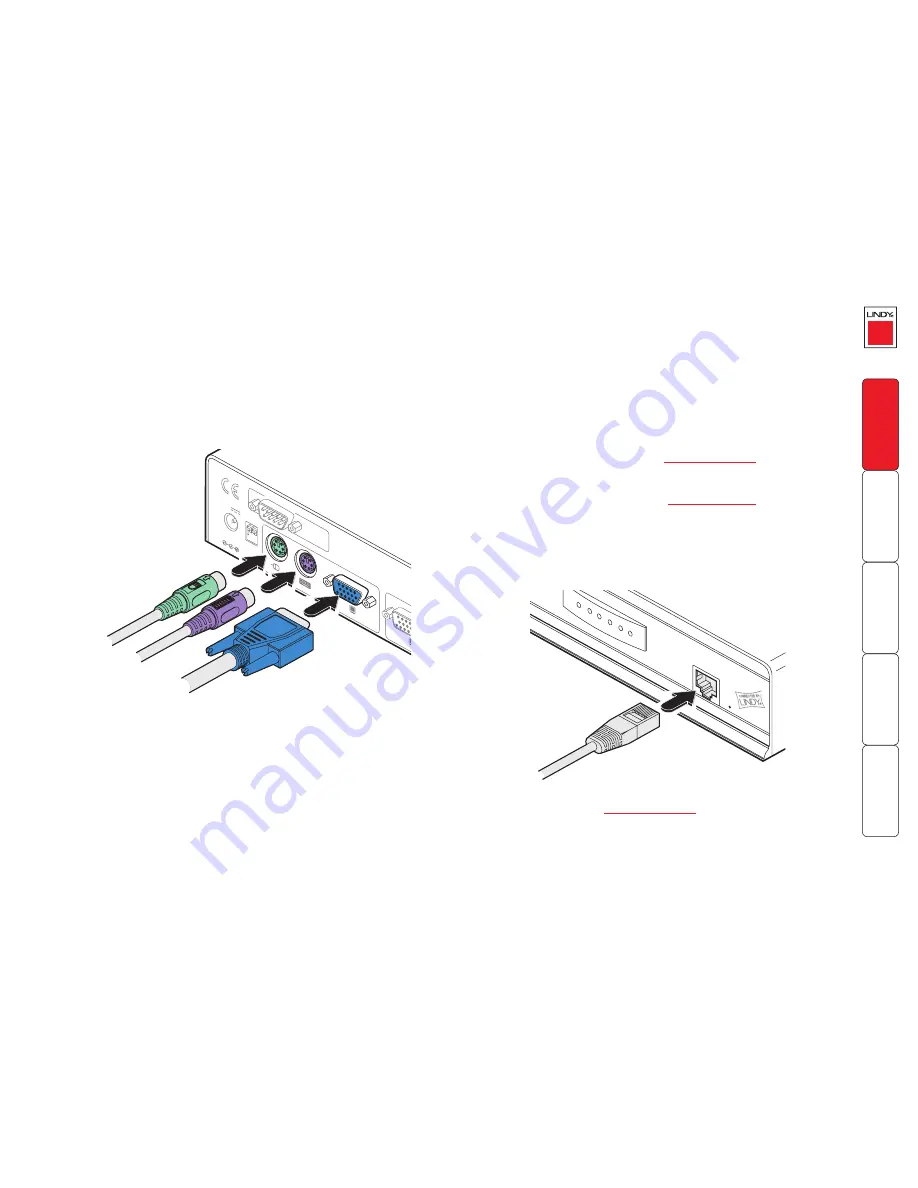
8
Local keyboard, video monitor and mouse
A locally connected keyboard, video monitor and mouse are required during the
initial configuration. These are also useful during normal use to allow quick local
control of any connected host computers.
To connect a local keyboard, video monitor and mouse
1 Position a suitable keyboard, video monitor and mouse in the vicinity of the
CPU IP such that their cables will easily reach.
2 Connect the keyboard, video monitor and mouse plugs to the sockets,
collectively labelled as ‘KVM CONSOLE’, at the rear of the CPU IP.
COM1
MODE
M
COM2
POWER
CONTROL
INDOOR
USE
ONL
Y
KVM
CONSOLE
5V
1
2
ON
2A
COMPUTER
/ KVM
SWITCH
From mouse
From keyboard
From video monitor
IP network port
The CPU IP provides an autosensing Ethernet IP port that can operate at 10 or
100Mbps, according to the network speed. The CPU IP is designed to reside
quite easily at any part of your network:
• It can be placed within the local network, behind any firewall/router
connections to the Internet, or
• It can be placed externally to the local network, on a separate sub-network
or with an open Internet connection.
Wherever in the network the CPU IP is situated, you will need to determine
certain configuration issues such as address allocation and/or firewall adjustment
to allow correct operation. Please refer to
Networking issues
within the
Configuration chapter for more details.
IMPORTANT: When the CPU IP is accessible from the public Internet or dial up
connection, you must ensure that sufficient
security measures
are employed.
To connect the IP network port
1 Depending upon where in the network the CPU IP is being connected, run a
category 5e or 6 cable from the appropriate hub or router to the CPU IP.
2 Connect the plug of the category 5e or 6 cable into the IP port on the front
panel of the CPU IP.
LOC
REM
VNC
100
LNK
PWR
IP
Access Switch Plus
3 Configure the network settings as appropriate to the position of the CPU IP
within the network - see
Networking issues
for details.





